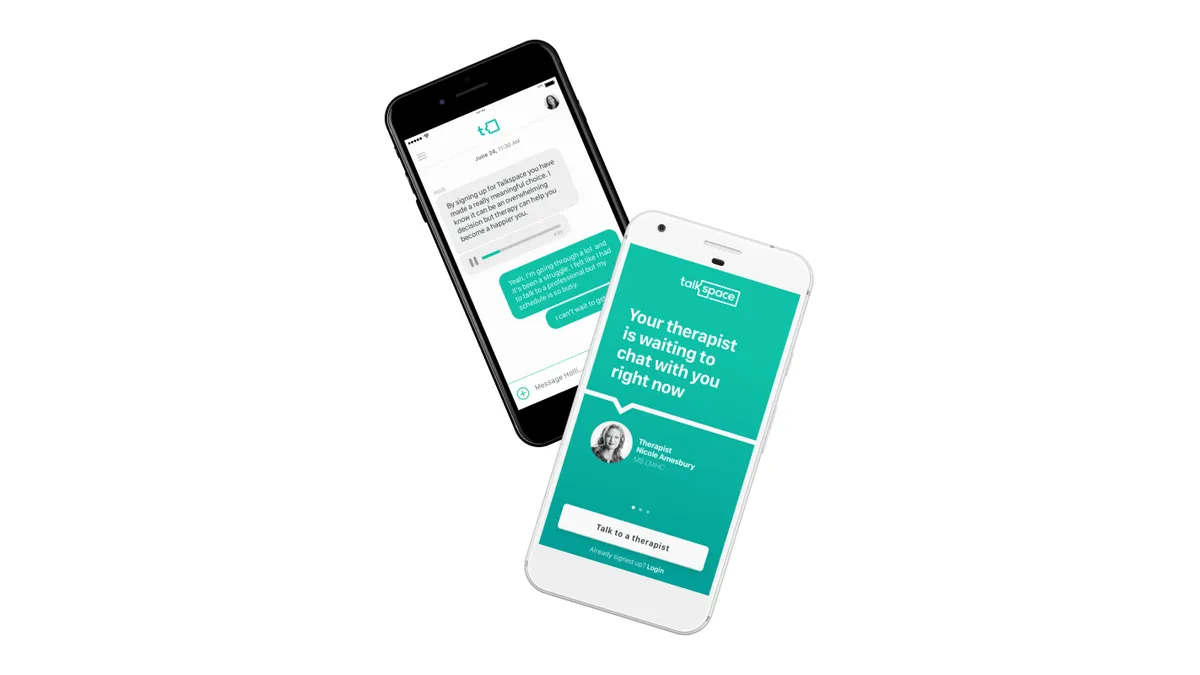Brief:
- Talkspace, a provider of online therapy, ended its partnership talks with Facebook after the social network decided not to remove a controversial post from President Donald Trump that was interpreted as a call to escalate violence. "We will not support a platform that incites violence, racism, and lies," Talkspace CEO Oren Frank said in a tweet announcing the decision.
- The partnership talks focused on providing mental health content for Facebook, and free online therapy from the Talkspace app to certain audiences such as students. The deal with Facebook would have netted Talkspace "hundreds of thousands of dollars," CNBC reported.
- Talkspace's blog receives about 1 million unique views a month and is currently focused on mental health issues during the coronavirus pandemic. Frank said he will resume talks with Facebook if the social network improves content moderation, per CNBC.
Insight:
Talkspace's decision to end conversations with Facebook comes as the content moderation policies of social media companies face their most significant test amid civil unrest. The issue is complex and politically charged, given that social networks serve as forums for public discussion that often overshadows much less controversial user-generated content (UGC) like selfies, family photos, pictures of pets and other innocuous posts. Social networks including Facebook have undertaken an effort to stop the spread of misinformation and inflammatory content on their platforms as advertisers fret over brand safety, and the current public crisis has invited greater scrutiny of their content moderation policies.
It's too early to tell whether Talkspace's public condemnation of Facebook signifies a broader trend of companies that refuse to collaborate with the social network, which claims to have 195 million users in the U.S. and Canada. Facebook has weathered past crises like the Cambridge Analytica scandal that culminated in a record $5 billion fine to resolve a Federal Trade Commission probe into its privacy practices. The company also has faced criticism from across the political spectrum about its content moderation policies, including accusations of censorship. Those crises haven't stopped Facebook from expanding its user base and boosting ad sales, though the economic fallout from the coronavirus pandemic has led the company to warn about a possible decline in revenue.
Facebook's content moderation policy also spurred internal criticism from "dozens" of employees who staged a "virtual walkout" to protest a decision by CEO Mark Zuckerberg to not take down President Trump's controversial post, The New York Times reported. Trump used the same language in a tweet, leading Twitter to mark it with a statement that said, "This Tweet violated the Twitter Rules about glorifying violence. However, Twitter has determined that it may be in the public's interest for the Tweet to remain accessible." A prior decision by Twitter to label a Trump tweet about mail-in ballot fraud with a fact-checking label led the president to sign an executive order aimed at weakening a law that protects social media companies from legal liability related to user posts, The Washington Post reported.
The content moderation policies of social media companies are likely to remain controversial, but how brands respond still remains to be seen.













